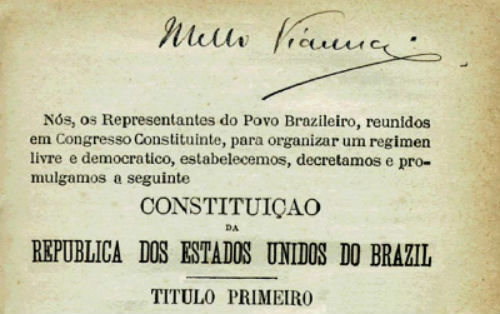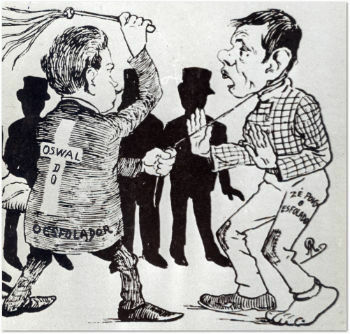In the late 1880s, several Brazilian political sectors mobilized in favor of the extinction of the monarchy and the consolidation of the Republic in Brazil. At that point, the disarticulation of the slavery order determined the downfall of one of the most significant supporters of the monarchy. Furthermore, the emergence of new political actors, eager to expand their participation, also exposed the fragility that affected the imperial government.
At that time, the most expressive supporters of republicanism were divided into three different wings: positivist, evolutionist and revolutionary military. The positivist military believed that the Republic would be a modernizing step in the country's political life as the new government was led by a centralized power structure in the hands of the military.
On the other hand, the so-called evolutionists, supported by São Paulo coffee growers, hoped that the regime republican establishment of greater political freedoms and not that it was not created through great agitations. Finally, manifesting a minority republican wing, the revolutionaries hoped that the new regime would be inspired by the First French Republic (1792 - 1794), where the popular had a significant participation.
Finally, among so many orientations, we observe that the military wings were responsible for a political transition lacking any support from the less privileged classes. Not by chance, the end of the Brazilian monarchy did not open the way for the old dilemmas of social, political and economic exclusion to finally be called into question. Formed by a miserable and uneducated population, the Brazilian nation passed from the hands of the military to the new agro-export elites.
Do not stop now... There's more after the advertising ;)
If, on the one hand, the progress announced by our new flag was felt in large urban centers, the majority of the rural population was shown to be attached to the power reserved for large landowners. Among other guarantees, the Constitution of 1891 vetoed the expansion of political rights by determining the exclusion of the illiterate from any electoral process. Thus, the huge social differences and the precariousness of the education system paved the way for republican conservatism.
Finally, we observe that the Brazilian Republic has not become an instrument of dialogue between the country's ruling classes and the great mass of rural and urban proletarians. The absence of this dialogue turned out to be a cornerstone for a series of revolts to bring into vogue the enormous gap that separated the State and the majorities it was actually supposed to represent. The possible transformations of our representative system were cast into oblivion.
By Rainer Sousa
Graduated in History
Would you like to reference this text in a school or academic work? Look:
SOUSA, Rainer Gonçalves. "The republican regime in Brazil"; Brazil School. Available in: https://brasilescola.uol.com.br/historiab/governos-republicanos.htm. Accessed on June 27, 2021.


